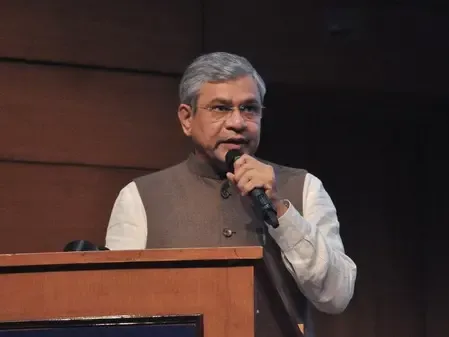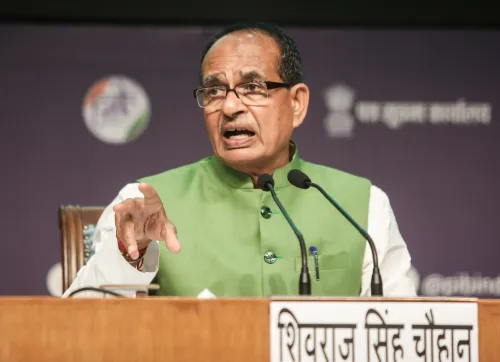Is India Set for a Major Electronics Transformation to Boost Local Value Addition to 40%?

Synopsis
Key Takeaways
- India aims to boost local value addition in electronics to 35–40%.
- Collaboration with smartphone manufacturers is key to this initiative.
- 24 electronics projects have been approved under the PLI scheme.
- ECMS 2.0 is set to enhance the competitiveness of India’s electronics ecosystem.
- 30 strategic chipsets will be designed and manufactured in India.
New Delhi, Nov 17 (NationPress) The Indian government has initiated collaboration with smartphone manufacturers to define the future phase of the Production-Linked Incentive (PLI) scheme, stated Union IT and Electronics Minister Ashwini Vaishnaw on Monday.
During a media briefing at an event, the minister highlighted the objective of raising the proportion of domestically produced components in smartphones and essential electronics to 35–40 percent within the next few years.
He mentioned that 24 electronics component projects approved under the existing scheme, along with new investments anticipated under ECMS 2.0, will significantly contribute to enhancing domestic value addition.
As more components are fully manufactured in India, this growth is expected to unfold progressively.
“We foresee a remarkable increase in local value addition. By the time electronic components are entirely manufactured here, we aim to achieve the 35–40 percent range,” Vaishnaw informed reporters.
The minister also reaffirmed that the government intends to design and produce 30 strategic chipsets domestically.
"These chipsets will serve as the foundation of India’s semiconductor ambitions, enhancing its potential to evolve into a global tech manufacturing hub," he added.
Vaishnaw confirmed that work on PLI 2.0 for smartphones is in progress with industry participants. The current scheme, concluding this financial year, is regarded as the most successful among India’s incentive initiatives.
This initiative has attracted major international manufacturers to India, facilitating the country’s emergence as a prominent smartphone production center.
Industry leaders have expressed their support for this momentum. Pankaj Mohindroo, Chairman of ICEA, remarked that India is entering a new growth phase.
“An electronics manufacturing revolution is imminent. ECMS signifies a pivotal moment in India’s electronics manufacturing journey. This scheme will be the catalyst to establish one of the world’s most competitive ecosystems across components, sub-assemblies, and capital goods,” he stated.
"Mastering machines means mastering the market. ECMS will anchor global value chains in India, nurturing globally competitive Indian champions across major product verticals and propelling our progress towards the Prime Minister’s vision of $500 billion in electronics manufacturing. This marks India’s next industrial revolution, and we are wholly committed to realizing it,” Mohindroo concluded.









